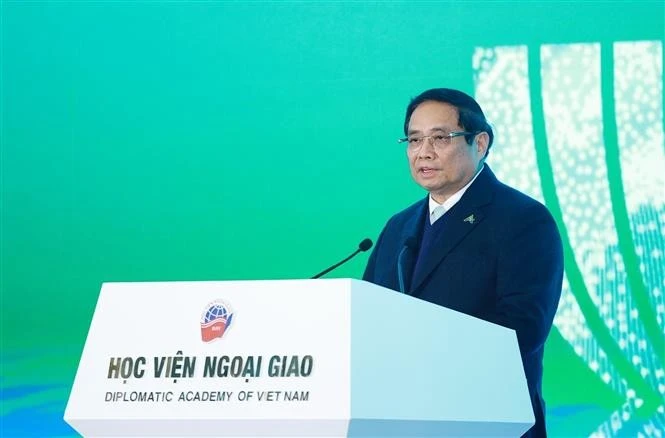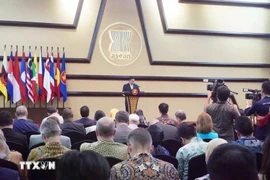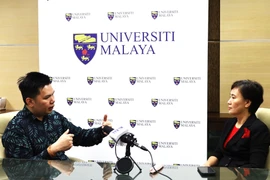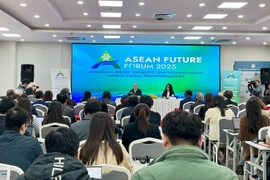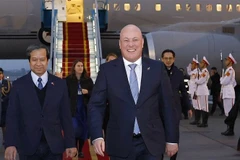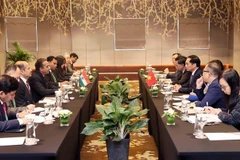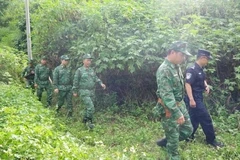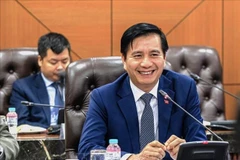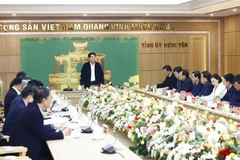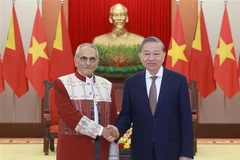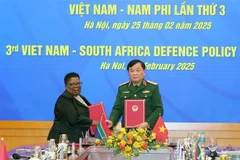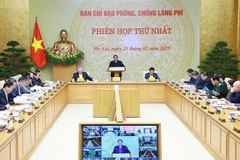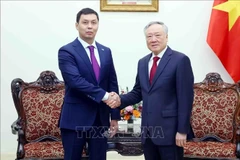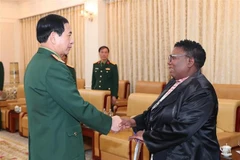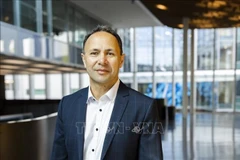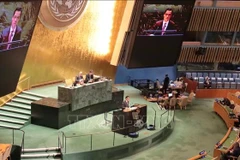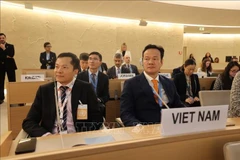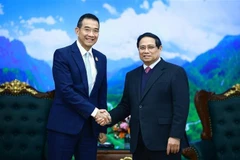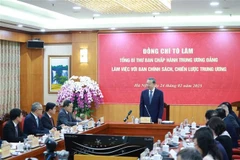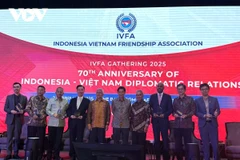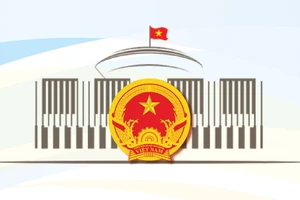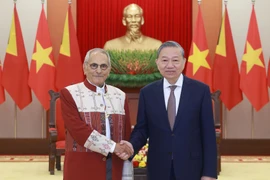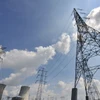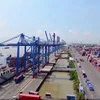Hanoi (VNA) – Vietnamese Prime Minister Pham Minh Chinh outlined three strategic priorities and three breakthrough actions to enhance ASEAN’s unity, resilience, and global integration while delivering his opening remarks at the ASEAN Future Forum (AFF) 2025 in Hanoi on February 25.
PM Chinh underscored the importance of reinforcing ASEAN’s strategic self-control by strengthening the bloc's solidarity and centrality. An ASEAN with strategic self-control must be consensus-driven, cohesive, balanced and flexible in its external relations. The bloc should play an active role in shaping the regional order and fostering international cooperation amid growing global uncertainties.
He stressed the need to build an economically resilient ASEAN. The region must revitalise traditional growth drivers while simultaneously fostering new ones, particularly in science, technology, innovation, and digital transformation. ASEAN should take the lead in advancing the digital economy, green economy, circular economy, and renewable energy, while integrating deeper into global supply chains to become a strategic manufacturing hub.
The PM highlighted the necessity of preserving ASEAN’s core values and identity. The ASEAN spirit - characterized by consensus, harmony, unity in diversity, and respect for differences - must not only be upheld but also actively promoted as guiding principles in international relations.
To translate these strategic priorities into action, the Vietnamese government leader proposed three breakthrough measures.
First, ASEAN must establish a more flexible, effective, and responsible decision-making mechanism while maintaining the consensus principle. This approach should include specific mechanisms to facilitate the implementation of strategic initiatives.
Second, he called for greater public-private cooperation to mobilise all available resources for regional development, particularly in key infrastructure projects. Encouraging the increased participation of the private sector in total social investment, further eliminating trade barriers, and developing a smart, secure, and digital economic environment will be essential to strengthening ASEAN’s trade and investment landscape.
Third, the PM emphasised the need to enhance ASEAN connectivity, particularly in infrastructure connectivity, people-to-people exchanges, and institutional harmonisation. Streamlining decision-making processes and simplifying administrative procedures will be crucial in facilitating more effective regional cooperation.
Reflecting on Vietnam’s three-decade journey with ASEAN, PM Chinh reaffirmed the country’s strategic vision - recognising ASEAN as a natural development space and positioning Vietnam as an active and responsible member in strengthening regional unity, enhancing ASEAN’s central role, and promoting sustainable growth.
Quoting a Vietnamese proverb "Mot cay lam chang nen non, ba cay chum lại nen hon nui cao," (One tree cannot make a mountain, three trees gathered together can make a high mountain), he emphasised that ASEAN and Vietnam are at a historic turning point, striving toward ambitious goals. Vietnam firmly believes in ASEAN’s solidarity, unity, and strategic value and remains committed to being a proactive, responsible member in building a cohesive, inclusive, and resilient ASEAN community.
Vietnam pledges to contribute to the realisation of the ASEAN Community Vision 2045, ensuring that ASEAN’s future development benefits all people in the region, said the PM, adding that along with member states, partners, and international friends, Vietnam aims to write new and proud chapters in ASEAN’s history.

With the theme Building a United, Inclusive, and Resilient ASEAN Amidst Global Transformation, AFF 2025 is a landmark event, coinciding with the 10th anniversary of the ASEAN Community and 30 years since Vietnam joined the bloc. This year, ASEAN is also set to adopt Vision 2045, which will guide the region into a new era of unity, resilience, and innovation with a people-centered approach.
According to PM Chinh, the world and the Asia-Pacific region are witnessing profound changes, with a mix of challenges and opportunities, but with more challenges and difficulties. Global, national, and comprehensive issues are evolving faster, and becoming more complicated, and less predictable.
Today, the world is facing trends such as political polarisation, aging population, and resource depletion; diversification of markets, products, and supply chains; greening of production, business, and services; and the digitalisation of all human activities. This context presents many difficult problems but also opens up rare opportunities for ASEAN to assert its position and make breakthroughs, he noted.
The PM mentioned that from just five founding member states nearly 60 years ago, today’s ASEAN has grown into a community of 10 countries, and become the fifth-largest economy in the world with the leading growth rate, a centre of regional and global integration processes, and a bridge for dialogue and cooperation for peace and development in the region, contributing positively to shaping a new world order.
As it enters a new phase of development, ASEAN is forecast to become the third-largest economy in the world, with GDP exceeding 10 trillion USD and a consumer market of more than 800 million people, and will become a hub for technology, digital economy, and innovation, with a projected digital economy worth 1 trillion USD by 2030.
To make this forecast a reality, PM Chinh stressed that ASEAN needs not only unity and consensus but also a breakthrough mindset, sharp strategy, feasible roadmap, focused resources, and decisive action./.
